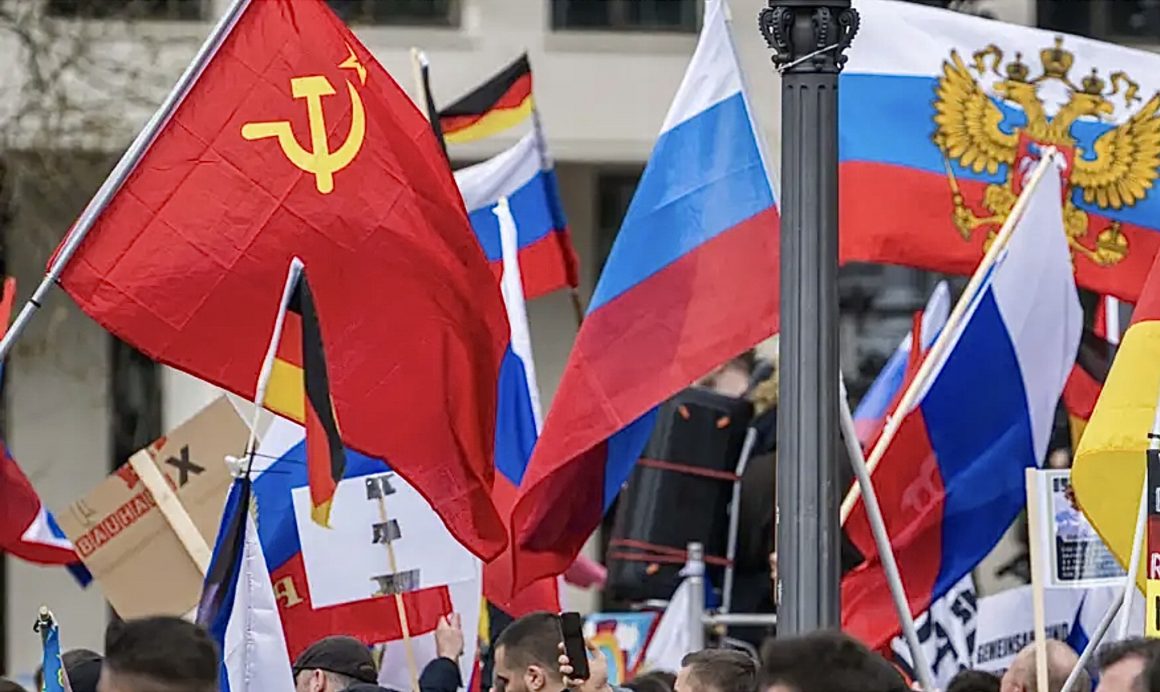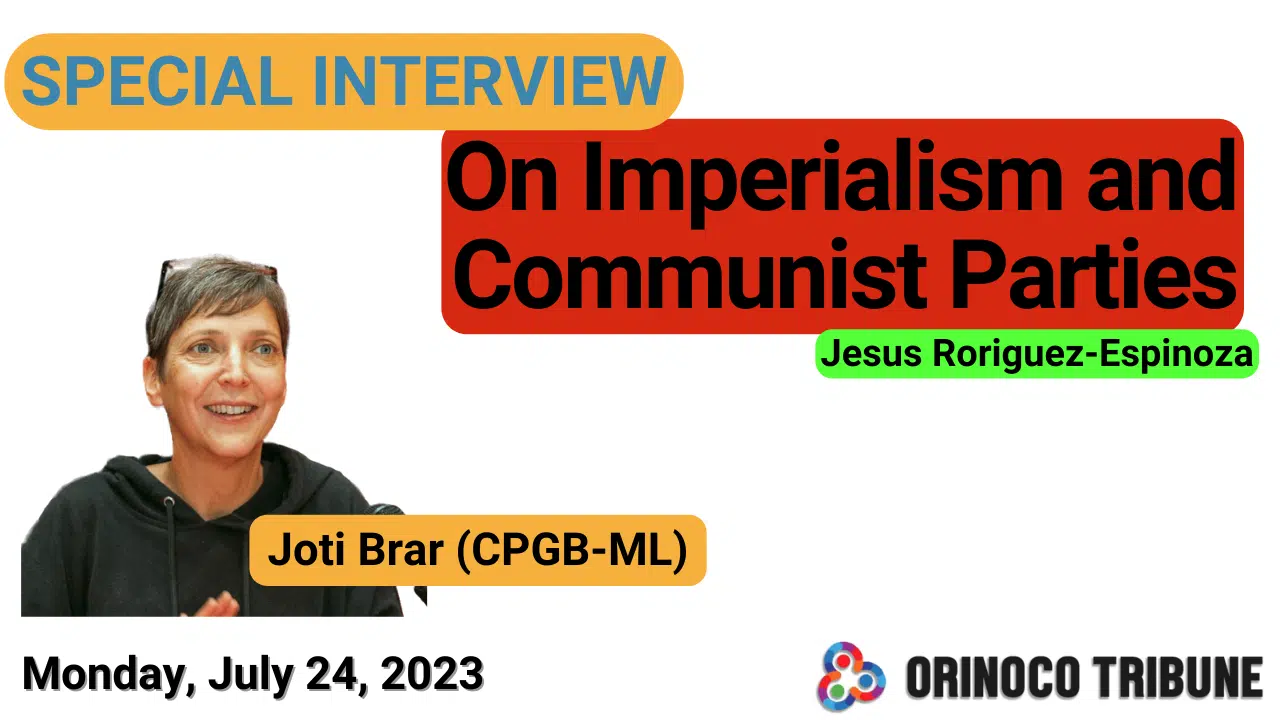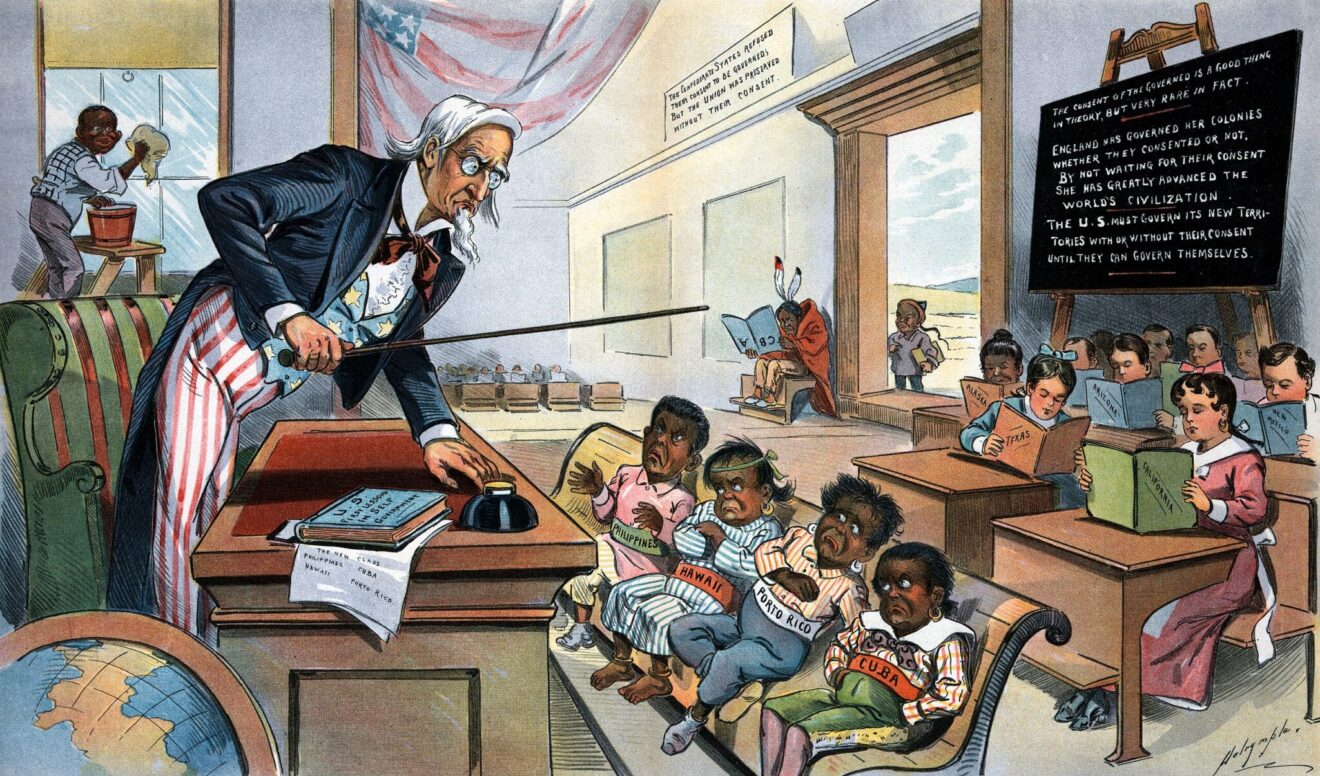
How to help end western Marxism’s purity fetish? Join the anti-NATO coalition the Ukraine proxy war has produced.
BY RAINER SHEA
JULY 22, 2023
Biden’s proxy war in Ukraine has exposed the problem that Carlos Garrido analyzes in his book The Purity Fetish and the Crisis of Western Marxism. As Garrido talks about, supposedly Marxist intellectuals like Zizek have responded to the conflict by calling to support NATO, portraying the alliance’s cause in Ukraine as just even though it was NATO’s fascist Kiev coup which started the conflict. This opportunistic accommodation of imperialist ideas is an extension of the same purist, undialectical mentality that’s also caused these “Marxists” to be anti-China, one the basis that its incorporation of markets means China’s state isn’t socialist.
Ukraine has revealed that the problem goes even deeper than that though. Because supporting China and its efforts to lift the exploited countries out of poverty is no longer the only big imperative for communists; there’s now an imperative for us to support Russia’s own counter-hegemonic actions—actions which have been advancing China’s projects. And this is also something these types on the left have refused to do.
This wouldn’t be surprising, except for how many of the Marxists who are pro-China have now simultaneously taken an anti-Russian stance. Not necessarily a pro-NATO stance; simply a position where they seek to distance themselves from Russia’s special military operation. And that’s undermined whatever good they could have done by supporting China, or by supporting the DPRK; because when a communist acts neutral in a conflict between imperialists and anti-imperialists, this by default helps the imperialists. It lets the hegemon better wage its narrative war, giving perceived credibility to its arguments for exacting reactionary violence. There’s a reason why radicals across the formerly colonized world have overwhelmingly been the ones voicing support for Russia, while the ones in the Euro-American sphere have overwhelmingly engaged in this “neutrality”; one side’s social conditions incentivize fighting NATO by any means necessary, while those of the other side incentivize ideological compromise with liberals.
I made these observations last year, when I noticed the socialist orgs in my country were making opportunistic decisions after the Ukraine war presented them with a choice. What I’ve since realized is that these decisions have been a consequence of a more fundamental deficiency within the thinking of today’s U.S. radicals. This was of course initially apparent from seeing the ultra-leftist reasoning behind these disavowals of the anti-imperialist cause; it was clear that this came from a failure to grasp primary vs secondary contradictions, and to see how the contradictions of the Russian state don’t make its weakening of U.S. hegemony a bad thing. Yet I still hadn’t so far seen how deeply this willful disregard for strategic thinking goes; these radicals are committing the error of purity fetishism on international issues parallel to the fetishistic error they’re committing on domestic issues.
This is the error of assuming that we can act idealistically within the domestic struggle, then expect to win. When ultra-lefts isolate themselves from essentially the entire anti-NATO movement because they only want to engage with others in left circles; or frame our society’s contradictions in ways that make it look like the differences between the workers are more important than their shared interests; they’re operating within the same logic that causes them to oppose the special military operation.
These stances are self-reinforcing; if somebody only sees leftists and liberals as worth reaching out to, and thinks every political person who isn’t on the left is by definition a fascist, they’re going to be further incentivized to join in on the vilifications of Russia. As due to the left’s own failures on anti-imperialism, the right has become a comparatively bigger source of anti-NATO sentiment; which can let the ultra-lefts attack serious anti-imperialist practice as innately right-wing, claiming anybody who’s open to participating in this practice is by default an irredeemable reactionary.
The truth is that the reactionaries they’re talking about, the culture war-obsessed individuals who’ve joined in on the recent anti-trans hysteria, naturally make themselves incompatible with a serious anti-imperialist movement; there’s no room for their polarizing rhetoric in a multi-tendency coalition. The anti-NATO coalition that’s emerged is predominantly made up of pro-Russian Marxists, and the types of libertarians whose main priority is challenging the war machine rather than fighting the left. If these ultras believe the presence of the latter element makes the pro-Russian stance of the former element incorrect; or makes the coalition hostile towards marginalized peoples; then they aren’t thinking about what it practically looks like to transform a society.
Every revolutionary movement starts by operating within a society that has contradictions. Should they effectively curse the same people they seek to liberate by isolating themselves to their own circle of “pure” minds? Or should they act like they have confidence in their own persuasive abilities, and build a relationship with the broad category of people? This is the question one can come to ask when they’ve realized the thing Garrido points out: that the people of this country are not their government, as increasingly their material interests don’t align with those of their capitalist ruling class:
Our country’s history, indeed, is a history marked by conquest, enslavement, genocide, exploitation, imperialism, and all the other evils brought by the development of the capitalist era in world history. It is also marked, however, by the struggles against feudal absolutism; by a promise for universal life, liberty, and pursuit of happiness — all demands which are unfulfillable within the capitalist mode of life; by the struggles against chattel slavery, wage slavery, genocidal attacks on indigenous communities; by the struggles, in the 20th century, against fascism, imperialism, for civil rights, for peace, etc. This is a complex, heterogeneous, and impure history. It is, in short, a contradictory history, containing within itself a unity of opposing forces — one which fights for human emancipation, the other which fights for preserving the tyranny of capital. We must learn how to use these objective contradictions to our advantage. The task ahead of us requires aligning our struggles today with the positive elements of the past and connecting the moribund capitalist-imperialist forces of our day with our past’s negative elements.
If many who oppose NATO are at the same time wrong about economic issues; or about the land question; then enter into their coalition so that you can help build a more progressive flank within the anti-imperialist front. Those who’ve come to an anti-imperialist consciousness represent the most advanced section of the masses, because fighting U.S. hegemony is at this stage the most impactful way to weaken U.S. capital; therefore this section of the people cannot be abandoned. Why render yourself politically handicapped by becoming isolated from the forces you need to work within in order to defeat the state? If anyone tells you this strategy means working with fascists, they’re either lying or misinformed; fascists naturally make themselves incompatible with a functional anti-imperialist front.
The communists who’ve joined this front seek to appeal neither to the imperialism-compatible left, nor to the fascists; they seek to go lower and deeper, as Lenin said, to find the real masses. Those being the quiet majority of apolitical individuals, and the kinds of more mildly conservative individuals who could become Marxists if they’re exposed to communist theory. Those within these elements don’t share the anti-Russian hysteria of the liberal minority, and therefore aren’t able to be alienated by an org’s backing Russia’s anti-fascist war.
When you start going lower and deeper, you see how misleading it is for left opportunism’s apologists to claim there’s no way to build a mass base while consistently backing anti-imperialist actions. It only looks like the broad masses view being pro-Russia as absolutely intolerable if you’ve only ever organized within left spaces, where residual anti-Russian attitudes from people’s past liberal phases are prevalent. This niche is not representative of the majority of the people; therefore putting forth a consistently anti-imperialist stance is not political suicide, it’s the opposite. If you compromise on fighting U.S. hegemony to appease liberals, the structure of imperial dominance which American capital depends on will remain strong enough for revolution to continue being delayed; break from the imperialism-compatible left so you can become principled, and you’ll actually be able to win.
The more of these things you realize, the more you see the nature of the ideological struggle that U.S. Marxists who are serious about anti-imperialism need to wage: we have to combat ideas that encourage idealism, and advance a practical means of struggle. History’s great Marxists have instructed us to do this in relation both to the international and domestic struggles; for an example of the international part of this type of theory, this is Kim Il Sung’s warning about the peril of opposing an anti-imperialist effort simply because its facilitators have contradictions:
In Asia, Africa and Latin America there are socialist and neutral countries, and big and small countries. All these countries except the puppet regimes of the imperialists and their satellite states constitute anti-imperialist, anti-U.S. forces. Despite the differences of state socio-political systems, political views and religious beliefs, the peoples of the countries in these areas, as the oppressed nations who were suppressed and exploited by the imperialists and colonialists, have the common goal and aspiration to achieve national independence and national prosperity against imperialism and old and new colonialism. The differences of state socio-political systems, political views or religious beliefs can by no means be an obstacle in the way of joint struggle against U.S. imperialism [emphasis mine]. All countries should form an anti-imperialist united front and take anti-U.S. joint action to crush the common enemy and attain the common goal…To split the anti-U.S. united front or reject the anti-U.S. joint action will only bring a serious consequence of weakening the anti-imperialist, anti-U.S. struggle.
This parallels the conclusion that Henry Winston came to about how oppressed peoples in the core of the empire can gain liberation; namely by rejecting the pseudo-revolutionary theories which can cause somebody to perpetuate needless divisions within the working class, and building a revolutionary coalition:
Among the radicals, Black and white, who have popularized the colony theory are Eldridge Cleaver, Huey Newton, Regis Debray, James Foreman, Tom Hayden, Harold Cruse, James Boggs, Stokely Carmichael and Robert L. Allen. It is ironic that many of these radicals, who claim that Marxism is European in origin and must be revised in order to apply to the Black people in the U.S., advance theories based on revisions of Marxism by such Europeans as Herbert Marcuse, Leon Trotsky and Regis Debray, as well as the Trotsky-like revisions to be found in the “thought” of Mao Tse-tung. It was especially under the influence of Marcuse and Maoism that the New Left radicals began to be attracted to one or another pseudo-revolutionary theory, including the concept of an “’internal colony” of Black people in the U.S. While Marcuse’s ideas are not identical with “the thought of Mao,” the views of both stimulated anti-Marxist misconceptions of the world revolutionary process, the historic role of the working class and its relationship to the liberation struggles of oppressed people, and the imperative need for strategies based on the specific features and historic development of each country, each working class and each national liberation movement. During every upsurge in the people’s struggles, especially those of the mainly working-class Black people, there is a more extensive activation of counter-measures designed to sustain disunity and block alliance between Black and white workers, together with the Black people as a whole, against corporate monopoly [emphasis mine].
In the age of the new cold war, where social media has become a powerful weapon which opportunists can easily use to warp perceptions of reality the measure these anti-revolutionary forces are employing is one of making serious anti-imperialist practice look like a betrayal of marginalized peoples. The narrative they’re promoting is that to commit to helping the anti-NATO movement is to enable white supremacy, since the most prominent parts of this movement at present are on the right.
The leftists who act like this are only abdicating their own responsibility to make up for their mistakes, and become serious about fighting U.S. hegemony; the way to make the anti-NATO movement more progressive is by doing the things necessary to gain influence (as in building a multi-tendency coalition), then use that influence to advance the struggle for class and social liberation. Which is a struggle that can’t be won until we’ve sufficiently weakened the Democratic Party’s control over organizing spaces; a task that can only be accomplished by consistently fighting NATO’s psyops.
The leftists who say this strategy necessarily comes at the cost of aiding reactionary politics support their argument by portraying the fight against U.S. hegemony as much less important than it actually is. They reject the reality that revolutionaries can’t win domestically without being serious about the international struggle, claiming revolution can come about through a policy of almost exclusively focusing on the domestic. This idea comes from a willfully limited perspective, where one neglects the macro in favor of what they can see in their own neighborhoods; American capitalist power is dozens of times bigger than the country’s capitalist state, its true size is as vast as Washington’s military and economic control abroad. Neglecting solidarity with the struggles against this control by peoples such as the Russians, however politically expedient that looks in the moment, can end only in the failure of your own organizing endeavor.
Conventional thinking in today’s American leftist circles incentivizes one to adopt such an opportunistic kind of practice when it comes to internationalism. This is because these circles also embrace the domestic equivalent of that practice, where building ties with the masses is rejected due to the masses being seen as too impure. That’s the way Marcuse, as Winston observed, taught his ideological students to see the people; he and those similar to him promoted the view that the masses are fundamentally reactionary, and can therefore only ever be brought to revolution if we were to first wait for some great crisis which changes their consciousness.
We’re half a century into the neoliberal era, where our ruling class has been progressively taking away the people’s economic rights; such a crisis has come, and yet what we call “the left” still encourages us to be insular. To act like the majority of Americans don’t have revolutionary potential, even though they’ve now likely had this potential for quite a while; and to therefore not feel encouraged when the people start to come to anti-imperialist ideas, but say “the only people open to those ideas are fascists.” This is the basis for the argument that the pro-Russian stance is necessarily a right opportunist one: an attitude of alienation from the majority of the people.
The purity fetish perpetuates this counterproductive thinking. It provides those seeking to discredit an effective revolutionary practice with endless arguments, since if one looks for reasons to judge something as impure, they’ll never run out of them. That’s not how a Marxist thinks; a Marxist who’s serious about winning sees that the contradictions within the efforts to defeat our government don’t mean we should forsake these efforts. They mean we should back these efforts, and advance an iteration of them which is more progressive in character.
https://newswiththeory.com/how-to-help- ... -produced/
Rainer is getting to be a 'broken record' on this issue, so shall I.
He's quite correct that we should not look to the liberals which pass for the 'left' in the mainstream media nor the so-called 'progressives' that tail them. And an 'alliance of convenience' against imperialism should quite definitely be in the 'playbook' and enacted asap. But to assume that this is a way to bring libertarians to communism is a mistake. Unless their 'libertarianism' is of the meekest form make no mistake, these people, given opportunity, are the most relentless enemies of communism. If they don't want us dead then in jail or out of the country.
What portion of the MAGAs are of this view I don't know, certainly a significant number. But not a majority I think, if only because most Americans are utterly superficial in their politics(No accident there, either...). And as near half of the qualified electorate apparently doesn't give a damn given the 'choices' the system presents them: there is the 'potential'. They want something completely different from the present, something that benefits them. I think we can work with that.




